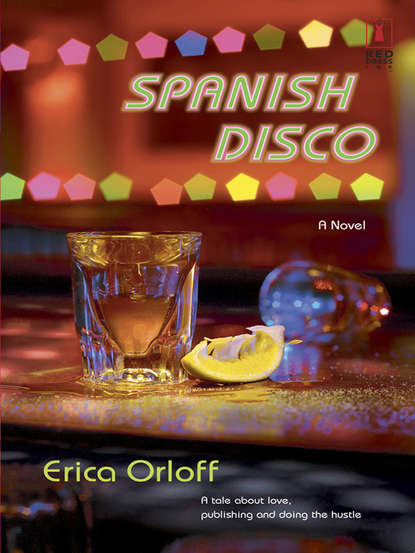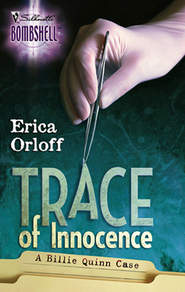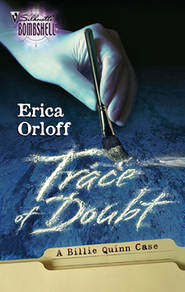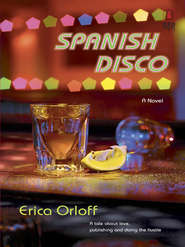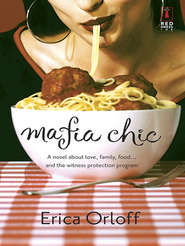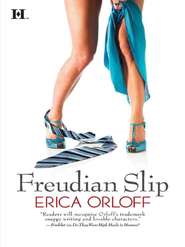По всем вопросам обращайтесь на: info@litportal.ru
(©) 2003-2024.
✖
Spanish Disco
Автор
Год написания книги
2019
Настройки чтения
Размер шрифта
Высота строк
Поля
“Thanks.”
“Don’t mention it. Coffee?”
“Intravenous.”
“You got it.” He held out a mug. “Start with this cup, and I’ll bring a fresh one in as soon as it’s brewed.”
I opened the door to Lou’s office without knocking.
“This better be worth it. I’m feeling very bitchy today,” I said, putting the mug down on a mahogany coffee table covered with books West Side had published, and flopping onto a long, buttercream leather couch.
“And how is this different from any other day?”
“If I wanted insults, I would call my mother.”
“Guess who called me in the middle of the night?”
“What is it with authors and the middle of the night, Lou?”
“Indulge me.”
“John Updike?”
“Bigger.”
“I have no clue,” I leaned up on one elbow and took a swig of coffee.
He took the unlit cigar he had in his mouth and set it in his Waterford ashtray.
“Roland Riggs.”
“Holy shit!” I said, as hot coffee sprayed out of my mouth.
2
L ou smiled at me. “I thought that would grab ya!”
The shock hit me as I mopped at coffee dribbling down my chin. I managed to sputter, “What’d he want?”
“You do know my famous Roland Riggs story, right?”
“Do I know it? I’ve been subjected to your Roland Riggs story at every cocktail party you and I have ever attended together. Worse, I’ve been subjected to it secondhand from people who have heard the story and feel the need to tell me. They usually embellish it.”
Troy came in with my second cup of coffee.
“Thanks.” I sucked down a long swig, burning my tongue.
After Troy shut the door, Lou feigned hurt feelings, “All right. So you’ve heard the story. Well…Roland Riggs calls me up in the middle of the night and says—get this— ‘Lou, I guess I was wrong about the computer.’”
Lou’s Roland Riggs story was this: In 1968, Lou was on a fishing trip in Key West. He caught not a single tuna after two days of deep-sea fishing with Key West’s best captain, and he decided to forget the mahi-mahi and settle in for a nice, long beer binge. Lou was sitting at an outdoor patio bar downing a bottle of imported German beer when a disheveled guy about Lou’s age sat down next to him and said, “The Germans are the only ones who can brew beer that doesn’t taste like piss.”
Lou was already a publishing hotshot back then. He knew it was Riggs, even though the author had grown a full beard since his back jacket photo was taken. Roland Riggs, even then, was considered the voice of a generation. He was notoriously moody with his publisher, but he wrote Simple Simon and the world had been waiting to see what he would do next. The book sold out of every printing and still does a brisk business. It’s required reading in nearly every high school English course. Roland Riggs hit the lottery with his tale of lonesome angst and war and the end of the 1950s and all its innocence and conformity and fumbled sex in the back of Dad’s borrowed car.
The two of them started talking. They began with Riggs’s dissertation on German brew-making skills. They moved on to discuss women (discovering they both preferred moody brunettes), music (they both despised anything pseudo-folkish with a tambourine in it), books (no one but Riggs, Faulkner, and Hemingway was worth a damn), society’s ills (marijuana should be legalized), the price of fame (people like Riggs needed to grow ridiculous beards to avoid strangers accosting them) and the cost of the Vietnam war (the soul of the United States). They started talking on a Friday night at ten o’clock and didn’t stop until lunch on Sunday. The last words of their conversation were about the future of technology.
Lou said, “Mark my word, Riggs, one day everyone is going to have a computer—even you. It’s gonna change the way we do everything. Even publish books.”
Riggs had stared out at the ocean, his blue eyes mirroring its color. “I’ll never give up my typewriter, Lou. You’ve had too much German beer.”
With that, the brilliant Roland Riggs stood up, bowed to Lou, and walked down to the turquoise, smooth ocean. He took off his shirt and dove into the water. After splashing about for ten minutes or so, he came out, shook himself like a shaggy dog, and walked, bare-chested, down the beach and out of sight.
“After thirty-some-odd years, Roland Riggs remembered the last words of your conversation?”
“It was a life-changing weekend, Cassie. I remember it.”
“You remember it because it was Roland Riggs. But if he was some faceless beachcomber, you wouldn’t remember a word of it.”
“You underestimate me.” Lou stood and crossed the room, barefoot, to his bookshelf. When Lou moved to Florida, he gave up suits. And shoes. He wore flip-flops to the office and then took them off once inside West Side’s plush, royal-purple-carpeted suite. He encouraged bare-footedness in all his employees: “It’s good for the sole…get it?”
He pulled down his worn copy of Simple Simon.
“This book changed people’s lives.”
“Lou, where’s your cynicism? One call from this guy and you’re misty-eyed. A generation of child-men went through a war, and he gave them a voice. But life-changing? This from the man who gave a contract to Eliza James because she claimed to have sucked Lyndon Johnson’s dick.”
“You’re too young to appreciate what this book meant. I remember people weeping over this damn book. Let Stephen King do that.”
“Danielle Steel makes people weep.”
“Danielle Steel, even with a brain transplant, could never win the Pulitzer.”
“Fine. I concede the book was important. Brilliant. But when I read news stories about Riggs I feel sorry for him. He hated the attention.”
Young men, legless and haunted after Vietnam, camped out in front of the Manhattan apartment where Riggs lived. Their pictures, in their wheelchairs lined up outside his Upper Eastside address, made Life magazine. They wrote him bags of mail. But Riggs seemed spooked by the attention his book garnered. He had his glamorous young wife, Maxine, and she was all he needed. Or wanted. They pulled up stakes and moved to rural Maine. He was working on his next book. That would be how he communicated with his public. Through his words. And he would have kept communicating if Maxine hadn’t been killed.
Maxine was the literary world’s equivalent of Jackie Kennedy. An eighteen-year-old free spirit when they met, she married the handsome, long-haired Riggs when she was nineteen and he was thirty. With long black hair and eyes described as emerald-colored, she dressed with grace and style, and beguiled the rare interviewer with witty comments and an infectious laugh. But after the veterans started seeking them out, Maxine and Riggs retreated to their home and sightings of them became gossip column fodder.
The papers reported it as a tragic accident. She had been standing outside the back door of their white clapboard house, when a trespassing deer hunter shot her. One minute she had smiled at Roland, saying she would go pick them some tomatoes for their dinner salad. The next she was a bloody heap a few feet from her carefully tended garden. Deer bullets leave gaping holes. The hunter never came forward. No one was ever charged.
Roland Riggs’s hair had turned completely white by her funeral. He aged ten years in four days. Within a week, he closed up his house in Maine and took off for parts unknown. He never published his next book. He never spoke to the press. He was never heard from again by anyone but his editor. Then his editor died of old age, and no one heard from him except his publisher’s royalty department.
“He said I’d understand,” Lou looked down at the dust cover to Simple Simon. “He read the article in Publisher’s Weekly about West Side. How I came here after Helen died. Cassie, he wants me…us…to publish his next book.”
I thought, briefly, of falling off the couch for effect, but I stayed in my seat and struggled to sound intelligent. “Why you? Because you’re a widower?”
I stared at Lou. What little hair he had left was silver, and he wore gold wire-rimmed glasses. Short, with a slender build, he would be thought of as elegant. Until someone heard him open his mouth. Then “New Yawkese” came flying out. “Fuck if I know, really, kid. He talked about that night in Key West. How we had a connection. He talked about finding his wife by their garden. He said, ‘I’ve been living with her ghost for over twenty years. She never leaves me. And it never gets better.’” Lou looked up at me. “That’s how I feel about Helen.”
“I know,” I whispered.





